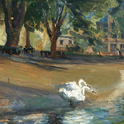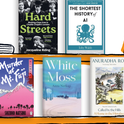Whatever your level of expertise in a particular domain, the chances are that there will be others who are better. Jonathan Rowson is exceptionally brilliant in one micro-domain: chess. But though a strong grandmaster and three times British champion, he could not break into the super-elite—the top two-dozen players who make a healthy living from chess.
Part of his memoir The Moves that Matter is about “successful underachievement.” The realisation that, as he puts it, while chess was likely to be in his future, his future was unlikely to be in chess. Perhaps he lacked the necessary intense engagement: “I began to feel mythic deprivation, sensing that the best stories in life were elsewhere,” he writes.
In an admittedly sparse field, Rowson is a superior chess writer. This book is (appropriately) divided into 64 lessons from the game, with headings such as Truth and Beauty, Power and Love. It draws on a dizzying range of references, from Einstein and Nietzsche to John Berger and Milan Kundera. There are disquisitions on AI, the importance of the handshake and a not entirely serious comparison of chess tactics and nappy changing.
It is a fine book, strongest when most personal—though on occasion it’s uncomfortably confessional. Rowson has a soulful spirit, at odds with the brutal world he inhabited. After one defeat he tells Russian émigré grandmaster Alexander Baburin he “learned” from the experience. “You know this has to stop,” replied Baburin. “You are not here to learn, you are here to win.”
Rowson deftly evokes the peripatetic chess professional’s existence. And there are some lovely turns of phrase. Questions raised in moments of relaxation at tournaments—“What makes Magnus Carlsen stronger than the ex-world champion Anatoly Karpov?”—are “post-tequila, pre-whisky.” But had I been his editor I would have said: “Don’t start with lessons illustrated by the personal. Write a memoir, from which lessons emerge.”
The Moves that Matter: A Chess Grandmaster on the Game of Life by Jonathan Rowson (Bloomsbury, £20)

A game of two halves: Source: Creative Commons
What chess can teach us about life
Grandmaster Jonathan Rowson reflects on his life as a successful underachiever
January 29, 2020











